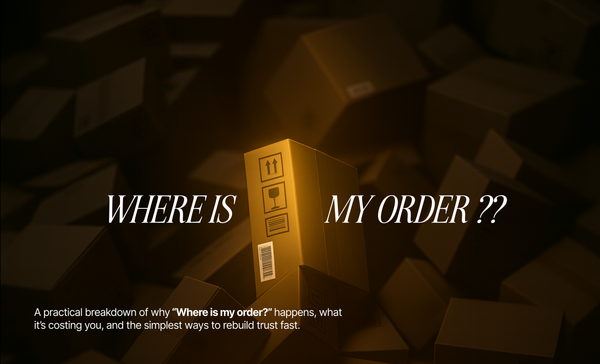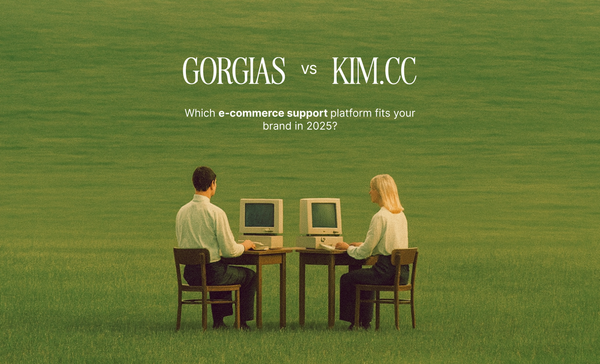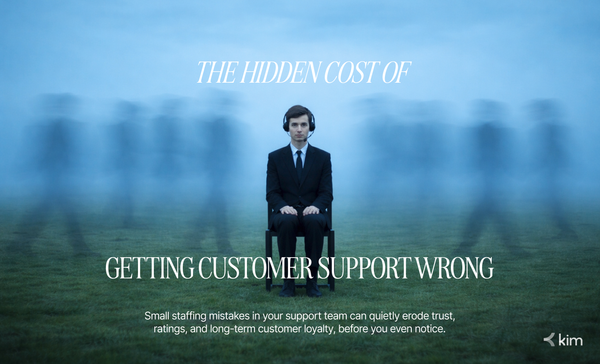How to Build a Winning VA Team Structure for Your DTC Brand
Build a Winning DTC Customer Support Team with L1, L2, L3 VAs! Kim.cc offers scalable, cost-effective solutions to boost CSAT & loyalty.

In the fast-paced world of Direct-to-Consumer (DTC) brands, exceptional customer support is no longer a nice-to-have, it's a business imperative. With the rise of e-commerce and fierce competition, building trust and loyalty hinges on how effectively you handle customer inquiries and concerns. This is where a well-structured Virtual Assistant (VA) team comes into play. By strategically combining L1, L2, and L3 support, you can create a scalable and efficient customer service system that empowers your DTC brand to thrive.
Key Takeaways
- How Are DTC Brands Building Their Marketing Teams?
- The New 4 Ps of DTC Marketing
- 5 Strategies to Structure Your L1, L2, and L3 VA Teams
- Benefits of a Hybrid VA Team Structure with Kim.cc
How Are DTC Brands Building Their Marketing Teams?
Let's take a quick detour to understand the marketing landscape of DTC brands. According to a study by Direct to Consumer [1], 63% of DTC brands prioritize building in-house marketing expertise, focusing on content creation, social media marketing, and influencer partnerships. Interestingly, only 22% outsource their entire marketing efforts. This highlights the growing importance of building a strong internal team to understand the brand voice and customer needs intimately.
This approach translates well to customer support. While some DTC brands choose to fully outsource their customer service, a growing number are opting for a hybrid model, leveraging the benefits of both in-house and outsourced resources.
The New 4 Ps of DTC Marketing
The traditional marketing mix of Product, Price, Place, and Promotion is evolving for DTC brands. In the context of customer support, these Ps can be reinterpreted as follows:
- Personalization: Customers expect personalized experiences, and support interactions are no exception. A well-structured VA team allows for targeted knowledge bases and training specific to your brand and products.
- Priority: Prioritizing customer needs fosters loyalty. A tiered support structure with L1 handling basic inquiries and L2/L3 tackling complex issues ensures faster resolution times.
- Proactiveness: Don't wait for customers to reach out. Proactive outreach through targeted communication and FAQs can address common concerns before they arise.
- Performance: Continuously monitor and improve your support structure. Track key metrics like Customer Satisfaction Scores (CSAT) and Net Promoter Scores (NPS) to identify areas for improvement.
5 Strategies to Structure Your L1, L2, and L3 VA Teams
Now, let's delve into the heart of building a winning VA team structure for your DTC brand:
1. Define Your Customer Support Needs
Before recruiting your VA team, conduct a thorough analysis of your customer support needs. This includes identifying:
- Customer touch points: Where do customers reach out most frequently (phone, email, live chat)?
- Common support inquiries: What are the recurring questions and issues your customers face?
- Support volume: How many customer interactions do you handle daily/weekly/monthly?
By understanding these aspects, you can determine the ideal mix of L1, L2, and L3 support agents.
2. Leverage VAs for Efficient Initial Contact
L1 VAs are the first line of defence in your customer support system. They handle basic inquiries, answer frequently asked questions (FAQs), and provide initial troubleshooting steps.
Kim.cc Perspective: Our platform offers a robust pool of L1 VAs with strong communication skills and basic customer service training. This allows you to efficiently manage high-volume, low-complexity interactions, freeing up your in-house resources for more intricate issues.

3. Develop L2 VAs as Specialists
L2 VAs act as a bridge between L1 and L3 support. They possess a deeper understanding of your brand and product offerings, enabling them to resolve more complex customer concerns.
- Invest in Training: Equip your L2 VAs with product knowledge, troubleshooting techniques, and communication best practices.
- Utilize Knowledge Base Resources: Develop a comprehensive knowledge base that L2 VAs can leverage to answer questions and guide customers through solutions.
4. Build a Strong In-House L3 Team for Complex Issues
L3 agents are your customer support superheroes. They handle the most challenging customer inquiries and escalations.
- Prioritize Brand Expertise: L3 agents should have a deep understanding of your brand, products, and target audience.
- Problem-Solving Prowess: Look for candidates with strong analytical and problem-solving skills who can think outside the box to find solutions.
- Retention is Key: Invest in L3 agent development and create a positive work environment to foster long-term retention.
5. Integrate Seamless Communication Channels
A seamless omnichannel experience is crucial for exceptional customer support. Ensure your L1, L2, and L3 VA teams can effectively collaborate and access customer information across all communication channels, regardless of the initial touchpoint (phone, email, live chat, social media).
- Unified Ticketing System: Implement a centralized ticketing system that tracks all customer interactions across channels. This allows L1, L2, and L3 agents to view a complete customer history, ensuring consistent and informed responses.
- Real-Time Collaboration Tools: Utilize instant messaging or internal chat tools to facilitate communication between VA teams. This enables L1 agents to quickly seek guidance from L2 or L3 for complex issues, reducing resolution times.
- Knowledge Base Accessibility: Ensure your knowledge base is readily accessible to all VA teams. This empowers L1 and L2 agents to provide accurate and up-to-date information to customers, minimizing the need for escalation.
Kim.cc Perspective: Our platform offers features that integrate seamlessly with many popular ticketing systems and communication tools. This allows for a smooth workflow between your in-house L3 team and our L1 and L2 VAs, ensuring a unified customer experience.
Benefits of a Hybrid VA Team Structure with Kim.cc
Building a winning customer support structure with Kim.cc offers several advantages for your DTC brand:
- Cost-Effectiveness: Kim.cc provides access to a global pool of skilled VAs at competitive rates, allowing you to optimize your customer support budget.
- Scalability: Easily scale your VA team up or down based on seasonal fluctuations or campaign needs.
- Expertise on Demand: Access L1 and L2 VAs with the specific skills and experience required for your brand and products.
- Focus on Core Business: Free up your in-house team to focus on strategic initiatives by offloading routine customer support tasks.
- Enhanced Customer Satisfaction: A well-structured VA team can significantly improve response times, resolution rates, and overall customer satisfaction.
Conclusion
Building a winning VA team structure is no longer a luxury, it's a necessity for DTC brands seeking to thrive in a competitive landscape. By strategically combining L1, L2, and L3 support, along with seamless communication channels, you can create a customer support system that fosters trust, loyalty, and ultimately, drives business growth.
Kim.cc stands ready to be your partner in building an exceptional customer support experience. With our flexible VA solutions and commitment to quality, we can empower your DTC brand to deliver the level of service your customers deserve.



